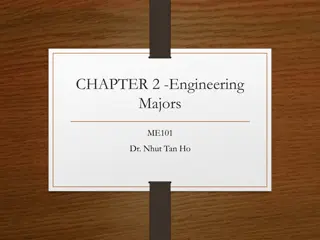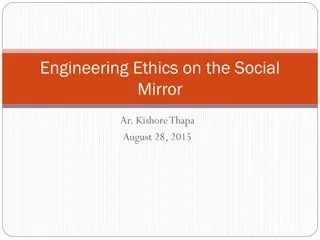
Understanding GPIO Development Beyond 2006
Delve into the evolution of GPIO development post-2006, exploring changes in GPIOLIB functions, kernel APIs, GPIO descriptors, and the role of engineers and devices in collaboration. Discover how GPIO chip integration and control mechanisms have advanced since then.
Download Presentation

Please find below an Image/Link to download the presentation.
The content on the website is provided AS IS for your information and personal use only. It may not be sold, licensed, or shared on other websites without obtaining consent from the author. If you encounter any issues during the download, it is possible that the publisher has removed the file from their server.
You are allowed to download the files provided on this website for personal or commercial use, subject to the condition that they are used lawfully. All files are the property of their respective owners.
The content on the website is provided AS IS for your information and personal use only. It may not be sold, licensed, or shared on other websites without obtaining consent from the author.
E N D
Presentation Transcript
GPIO for Engineers and Makers Linus Walleij, Linaro
GPIOLIB: What has happened since this (2006)? GPIOLIB: What has happened since this (2006)? int gpio_request(unsigned gpio, const char *label) int gpio_free(unsigned gpio) int gpio_direction_input(unsigned gpio) int gpio_direction_output(unsigned gpio) int gpio_get_value(unsigned gpio) int gpio_set_value(unsigned gpio, int value) unsigned gpio_to_irq(unsigned gpio) unsigned irq_to_gpio(unsigned irq) ENGINEERS AND DEVICES WORKING TOGETHER
Biggest lies: Biggest lies: <insert favourite biggest lie> <insert favourite biggest lie> GPIO is simple GPIO is simple ENGINEERS AND DEVICES WORKING TOGETHER
Kernel Kernel- -internal API changes internal API changes Just select GPIOLIB gpiochip_add_data() Descriptors A real device Open drain/open source API Pin control back-ends CONFIG_GPIOLIB_IRQCHIP Hogs ENGINEERS AND DEVICES WORKING TOGETHER
GPIO descriptors GPIO descriptors #include <linux/gpio/consumer.h> probe(struct device *dev) { struct gpio_desc *gpiod; gpiod = devm_gpiod_get(dev, reset , GPIOD_OUT_LOW); (...) } ENGINEERS AND DEVICES WORKING TOGETHER
GPIO descriptors GPIO descriptors gpio_keys { compatible = gpio-keys ; (...) button@1 { wakeup-source; linux,code = <KEY_ESC>; label = ESC ; gpios = <&gpio0 0 GPIO_ACTIVE_HIGH>; }; }; ENGINEERS AND DEVICES WORKING TOGETHER
The GPIO chip is a real device The GPIO chip is a real device struct gpio_device { int id; struct device dev; struct cdev chrdev; (...) }; /sys/class/gpio /sys/bus/gpio ENGINEERS AND DEVICES WORKING TOGETHER
Open Drain and Open Source (CMOS) Open Drain and Open Source (CMOS) Open Collector and Open Emitter (TTL) Open Collector and Open Emitter (TTL) ENGINEERS AND DEVICES WORKING TOGETHER
Pin Control Back Pin Control Back- -Ends: GPIO Side Ends: GPIO Side gpiochip_add_pin_range(struct gpio_chip *gc, const char *pinctl_name, unsigned gpio_offset, unsigned pin_offset, unsigned npins); gpiochip_add_pingroup_range(); /* External interface to pin control */ extern int pinctrl_request_gpio(unsigned gpio); extern void pinctrl_free_gpio(unsigned gpio); extern int pinctrl_gpio_direction_input(unsigned gpio); extern int pinctrl_gpio_direction_output(unsigned gpio); ENGINEERS AND DEVICES WORKING TOGETHER
Pin Control Back Pin Control Back- -Ends: Pin Controller Side Ends: Pin Controller Side struct pinmux_ops { (...) int (*gpio_request_enable) (struct pinctrl_dev *pctldev, struct pinctrl_gpio_range *range, unsigned offset); void (*gpio_disable_free) (struct pinctrl_dev *pctldev, struct pinctrl_gpio_range *range, unsigned offset); int (*gpio_set_direction) (struct pinctrl_dev *pctldev, struct pinctrl_gpio_range *range, unsigned offset, bool input); bool strict; }; ENGINEERS AND DEVICES WORKING TOGETHER
CONFIG_GPIOLIB_IRQCHIP CONFIG_GPIOLIB_IRQCHIP (A) gpiochip_ [lock|unlock]_as_irq(struct gpio_chip *gc, unsigned int offset); (B) Select GPIOLIB_IRQCHIP #include <linux/gpio/driver.h> (...) gpiolib_irqchip_add(struct gpio_chip *gc, struct irq_chip, *ic, unsigned int first_irq, irq_flow_handler_t handler, unsigned int type); (...) gpiochip_set_chained_irqchip(struct gpio_chip *gc, struct irq_chip *ic, int parent_irq, irq_flow_handler_t parent_handler); ENGINEERS AND DEVICES WORKING TOGETHER
Hogs Hogs gpio3: gpio@101e7000 { /* This hog will bias the MMC/SD card detect line */ mmcsd-gpio { gpio-hog; gpios = <16 0x0>; output-low; line-name = "card detect bias"; }; }; ENGINEERS AND DEVICES WORKING TOGETHER
Kernel Kernel- -external API changes external API changes SYSFS /sys/class/gpio CHARDEV /sys/bus/gpiochipN /dev/gpiochipN ENGINEERS AND DEVICES WORKING TOGETHER
The Rules of Linux Userspace GPIO The Rules of Linux Userspace GPIO 1. You do not access GPIOs from userspace 2. YOU DO NOT ACCESS GPIOS FROM USERSPACE 3. Read Documentation/gpio/drivers-on-gpio.txt 4. Use the character device ENGINEERS AND DEVICES WORKING TOGETHER
Why is the sysfs ABI not working? (WorksForMe) Why is the sysfs ABI not working? (WorksForMe) NO EXAMPLES ENGINEERS AND DEVICES WORKING TOGETHER
Features the Character Device Has Features the Character Device Has Discovery mechanism (not magic numbers) Cleanup of resources on closing or crashing Open Drain / Open Source Get and set multiple lines at once Good examples: tools/gpio/* ENGINEERS AND DEVICES WORKING TOGETHER
lsgpio lsgpio GPIO chip: gpiochip0, "pinctrl-bcm2835", 54 GPIO lines line 0: "[SDA0]" unused line 1: "[SCL0]" unused (...) line 16: "STATUS_LED_N" unused line 17: "GPIO_GEN0" unused line 18: "GPIO_GEN1" unused line 19: "NC" unused line 20: "NC" unused line 21: "CAM_GPIO" unused line 22: "GPIO_GEN3" unused line 23: "GPIO_GEN4" unused line 24: "GPIO_GEN5" unused line 25: "GPIO_GEN6" unused line 26: "NC" unused line 27: "GPIO_GEN2" unused (...) ENGINEERS AND DEVICES WORKING TOGETHER
Line Naming from the Device Tree Line Naming from the Device Tree &gpio { + /* + * Legend: + * "NC" = not connected (no rail from the SoC) + * "[FOO]" = pin is muxed for peripheral FOO (not GPIO) + * "" = No idea + * "FOO" = GPIO line named "FOO" on the schematic + * "FOO_N" = GPIO line named "FOO" on schematic, active low + */ + gpio-line-names = "[SDA0]", "[SCL0]", "[SDA1]", "[SCL1]", (...) + "STATUS_LED_N", + "GPIO_GEN0", "GPIO_GEN1", + "NC", "NC", /* GPIO 19 & 20 unused */ + "CAM_GPIO", + "GPIO_GEN3", "GPIO_GEN4", + "GPIO_GEN5", "GPIO_GEN6", ENGINEERS AND DEVICES WORKING TOGETHER
Open the Character Device Open the Character Device #include <linux/gpio.h> int fd = open( /dev/gpiochip0 , 0); struct gpiochip_info cinfo; ret = ioctl(fd, GPIO_GET_CHIPINFO_IOCTL, &cinfo); fprintf(stdout, "GPIO chip: %s, \"%s\", %u GPIO lines\n", cinfo.name, cinfo.label, cinfo.lines); struct gpioline_info linfo; ret = ioctl(fd, GPIO_GET_LINEINFO_IOCTL, &linfo); fprintf(stdout, "line %2d: %s", linfo.line_offset, linfo.name); ENGINEERS AND DEVICES WORKING TOGETHER
Line Handles READ Line Handles READ struct gpiohandle_request req; struct gpiohandle_data data; req.lineoffsets[0] = 4; req.lines = 1; req.flags = GPIOHANDLE_REQUEST_INPUT; strcpy(req.consumer_label, "pushbutton"); int lhfd = ioctl(fd, GPIO_GET_LINEHANDLE_IOCTL, &req); ret = ioctl(req.fd, GPIOHANDLE_GET_LINE_VALUES_IOCTL, &data); printf( line 4 is %s\n , data[0] ? high : low ); ENGINEERS AND DEVICES WORKING TOGETHER
Line Handles WRITE Line Handles WRITE struct gpiohandle_request req; struct gpiohandle_data data; req.lineoffsets[0] = 4; req.lines = 1; req.flags = GPIOHANDLE_REQUEST_OUTPUT; strcpy(req.consumer_label, "blinker"); int lhfd = ioctl(fd, GPIO_GET_LINEHANDLE_IOCTL, &req); data.values[0] = 1; ret = ioctl(req.fd, GPIOHANDLE_SET_LINE_VALUES_IOCTL, &data); data.values[0] = 0; ret = ioctl(req.fd, GPIOHANDLE_SET_LINE_VALUES_IOCTL, &data); ENGINEERS AND DEVICES WORKING TOGETHER
Line Events Line Events struct gpioevent_request req; struct gpiohandle_data data; struct gpioevent_data event; req.lineoffset = 4; strcpy(req.consumer_label, "linewatcher"); req.handleflags = GPIOHANDLE_REQUEST_OPEN_DRAIN; req.eventflags = GPIOEVENT_REQUEST_RISING_EDGE | GPIOEVENT_REQUEST_FALLING_EDGE; ret = ioctl(fd, GPIO_GET_LINEEVENT_IOCTL, &req); ret = read(req.fd, &event, sizeof(event)); printf( "GPIO EVENT @%" PRIu64 ": ", event.timestamp); if (event.id == GPIOEVENT_EVENT_RISING_EDGE) printf( RISING EDGE ); else printf( FALLING EDGE ); printf ( \n ); ENGINEERS AND DEVICES WORKING TOGETHER
Thank You! linus.walleij@linaro.org linux-gpio@vger.kernel.org






















